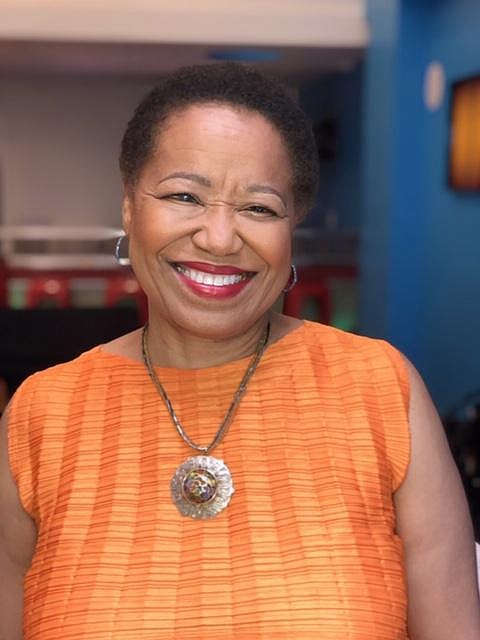NICHE Turns Health Data into a Catalyst
Style Magazine Newswire | 4/21/2023, 1:47 p.m.
The National Collaborative for Health Equity (NCHE) today issued a report on Leveraging HOPE: A Community of Practice, which applies to communities the comprehensive health data collected under NCHE’s groundbreaking Health Opportunity and Equity (HOPE) Initiative. A HOPE interactive data tool designed to help states and the country move beyond measuring disparities is used to help expand health equity in communities.
The HOPE Initiative has tracked social determinants of health and health outcomes by race, ethnicity, and socioeconomic status. Its interactive data tool measures how different racial, ethnic, and socioeconomic populations fare on 27 indicators of health and well-being within five domains- one for health outcomes and four that influence longevity and well-being. HOPE data portrays a dramatically different America if the impact of structural racism was eliminated and everyone experienced equal social, economic, and health opportunities: 70 million more people would live in low-poverty neighborhoods; 55 million more adults would live in households with a livable income; and 54 million more adults would achieve very good or excellent health.
Funded by the Robert Wood Johnson Foundation (RWJF) in 2018, HOPE Initiative dramatically changed the disparity narrative to one of opportunity. Instead of merely identifying health inequities, HOPE data pinpoints where resources must be directed to make meaningful and lasting changes.
“The COVID-19 pandemic revealed many challenges for public health and healthcare systems,” said Dr. Gail C. Christopher, NCHE’s Executive Director, citing the rationale for utilizing the HOPE data to directly improve equity and reduce institutional racism in communities. “The many challenges are being transformed into opportunities for action. We are applying data on the social determinants of health to address historic and contemporary structural racism. Our Leveraging HOPE work is an innovative action directed at disproportionate disease and deaths borne by populations of color.”
Sponsored by the John D. and Catherine T. MacArthur Foundation in 2022, Leveraging HOPE helps develop collaborative regional strategies that leverage state and local capabilities to apply and update existing HOPE data resources to local priorities. Virginia Commonwealth University’s Center on Society and Health partnered with NCHE on the Community of Practice with 10 initial organizations included in the report. “We discovered data challenges faced by community equity initiatives and make recommendations for the availability, accessibility, and scope of data that can inform local advocacy and policy work.,” Dr. Christopher said, noting the project’s impact on communities.
The health equity and social justice organizations use the HOPE database and framing as a catalyst for expanding policy and practices in local jurisdictions that promote health and racial equity in communities disproportionately harmed by the effects of the COVID-19 pandemic. The initial organizations were: Center for Achieving Equity (Cleveland, OH); Collaborative for Health Equity Cook County (Chicago, IL); Equity Matters (Baltimore, MD); Health Equity Solutions (Hartford, CT); LatinX Racial Equity (Oakland, CA); Louisiana Center for Health Equity (Baton Rouge, LA); One Love Global (Lansing, MI); Partnership for the Public Good (Buffalo, NY); Selma Center for Non-Violence, Truth & Reconciliation (Selma, AL); and Neshoba Youth Coalition (Philadelphia, MS).
In Hartford, Health Equity Solutions (HES), promotes policies, programs, and practices that result in equitable healthcare access, delivery, and outcomes. To achieve these goals, HES organizes coalitions, engages in outreach and education with the community, policymakers, and healthcare professionals, and advocates for policy changes. HES holds listening sessions and workshops to learn the health equity priorities of people across the state and support them in policy identifying and building coalitions around key issues. HES leveraged the HOPE data to provide framing for a series of conversations with community members about their health equity priorities.
“The data helped illustrate how health inequities impact the lives of people in Connecticut and how issues such as affordable housing impact health equity,” said Luz E. Benitez Delgado, NCHE Deputy Director for Programs and Strategy. “Data were presented on premature death, livable income, poverty concentration, and affordable housing metrics stratified by race and ethnicity to illustrate the wide-reaching consequences.”
Similarly, in Alabama, the Selma Center for Nonviolence, Truth, and Reconciliation educates communities on the factors impacting health, supports advocacy, and partners with leaders and decision-makers. Through Leveraging HOPE’s interactive data tool, the Selma Center focused on lowering homicide rates, which is a safety factor indicator. The impact of low income, limited access to education, and residential segregation is recognized, as is the importance of positive portrayals of the community, sharing local knowledge, supporting racial healing, and creating employment opportunities.
“Their work recognizes the power of pairing narrative and story to impact culture change and the importance of using data to tell a story and shift narratives from disparities to opportunities,” said Benitez Delgado, adding that the HOPE data helped shape conversations and narratives.
With generous support from RWJF, NCHE is launching the next phase with Leveraging HOPE to Transform Public Health Data Systems, which will include 12 more health and social justice organizations: Black Economic & Wellness Coalition of Akron (Akron, OH); Metropolitan Tenants Organization (Chicago, IL); Morgan State University's School of Community Health and Policy's Center for Urban Health Equity (Baltimore, MD); The Ministerial Health Fellowship (Hartford, CT; Cultivar La Salud (Fresno, CA); National Congress for Black Women (Baton Rouge, LA); The Firecracker Foundation (Holt, MI); Grassroots Gardens of Western New York (Buffalo, NY); Rural Health Medical Program, Inc. (Selma, AL); Alluvial Collective (Jackson, MI); New Mexico Social Justice and Equity Institute (Gallup, NM) and VOCES (Battle Creek, MI).
“We are learning how to apply the HOPE interactive data tool to local health equity work, and the different approaches that can be customized for local jurisdictions,” Dr. Christopher said. “Leveraging HOPE is helping to turn data into results on the ground that are expanding equity for populations of color.”




